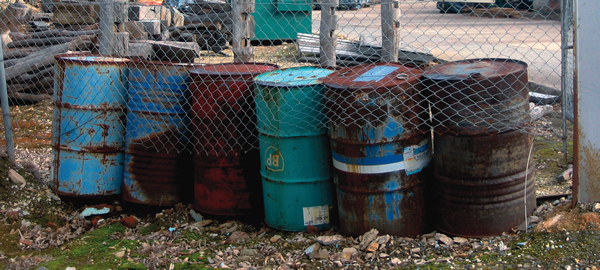Clearing up waste law: the Waste Bill
The Assembly’s Waste Bill gives councils and the DoE equal powers to act against illegal dumpers and strengthens the law on contaminating land, including underground water.
The Waste and Contaminated Land (Amendment) Bill is designed to strengthen the law on the subjects mentioned in its title and also bring about a “partnership approach” between the Department of the Environment and local government when tackling illegal waste.
As the title indicates, the Bill amends also two existing laws, mostly the Waste and Contaminated Land (Northern Ireland) Order 1997 but also the Producer Responsibility Obligations (Northern Ireland) Order 1998.
A public consultation last year found broad support for the Bill’s proposed content; most of those responding were councils or groups representing councils.
Fixed penalties are proposed as an option to punish less serious waste offences, rather than taking the defendant to court. These can be issued by DoE or council officials but they are discretionary; the power to prosecute through the courts still remains. Councils can use funds from these fixed penalties to cover the costs of enforcing waste law and cleaning up illegally dumped waste.
The department’s enforcement officers can also seize vehicles and other property which they suspect are being used in the illegal waste trade. Extra legislation is needed to put these powers into practice and also explain how the DoE will deal with seized property. Appeals could be made in a magistrates’ court.
Councils already have the power to serve notices which require occupiers or owners of land to remove illegal waste or take action to remedy the problem. The Bill gives the department the same power and also allows notices to be served on people suspected of illegal dumping. Conversely, the councils will have the same powers as the department to deal with illegal dumping, from fly-tipping to serious criminal offences.
At present, enforcement officers have to give 24 hours’ notice before they can enter residential premises or bring heavy machinery onto premises. However, this will be made easier with officers needing simply a court warrant or permission from the occupier. The definition of contaminated land is changed to include water in the underground strata of soil.
More prosecutions are expected to result after the Bill becomes law, which will incur some cost, but the fixed penalties can also help recover costs.
Opening the 13 April debate, Edwin Poots said he saw the Bill as a “crucial component in our efforts to manage waste”. He added that a fly-tipping protocol, explaining the roles and responsibilities of the DoE and councils, will be put in place before the legislation commences.
Environment Committee Chair Cathal Boylan said the Bill would help meet EU landfill targets and also make the province a “safer, healthier and more environmentally friendly” place to live. He warned that the DoE had planned to remove the Water Order 1999, which could make water pollution harder to prove, but this plan had been withdrawn.
Danny Kinahan commented that a litter prosecution resulting in an £80 fine could cost almost £1,000. Dolores Kelly wanted larger fines as a better deterrent. Members repeatedly referred to Northern Ireland’s natural beauty.
Accurate statistics on fly-tipping were needed before a protocol was produced, Poots confirmed. He added that it costs approximately £100,000 a day to clean up after litterers. The Bill passed without a vote and the Environment Committee took evidence on it up to 28 May. It is due to report back to the Assembly by 5 November.






